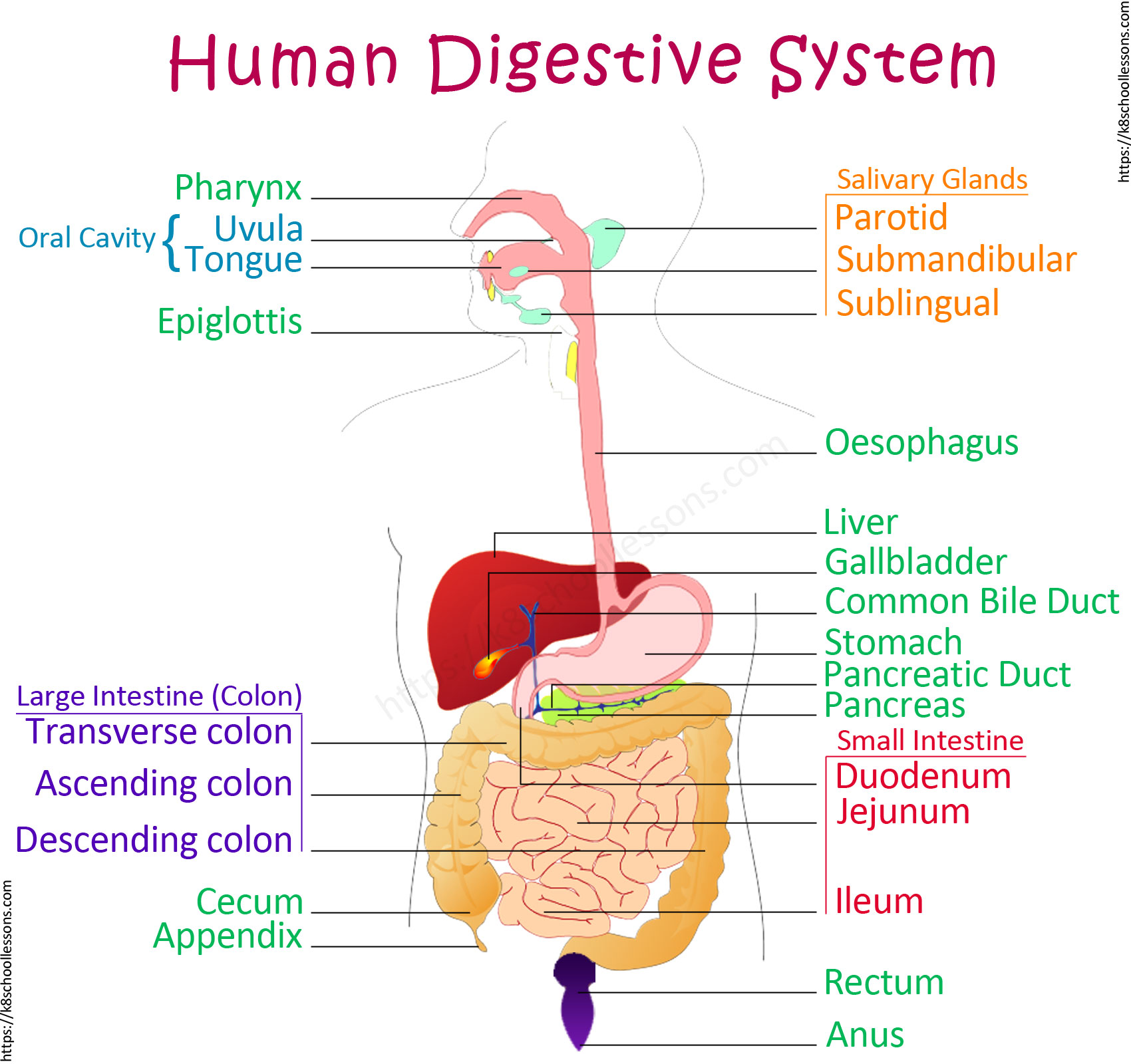
Digestive System for Kids Human Digestive System Human Body Facts
18.3: Digestion and Absorption. Digestion of food is a form of catabolism, in which the food is broken down into small molecules that the body can absorb and use for energy, growth, and repair. Digestion occurs when food is moved through the digestive system. It begins in the mouth and ends in the small intestine.
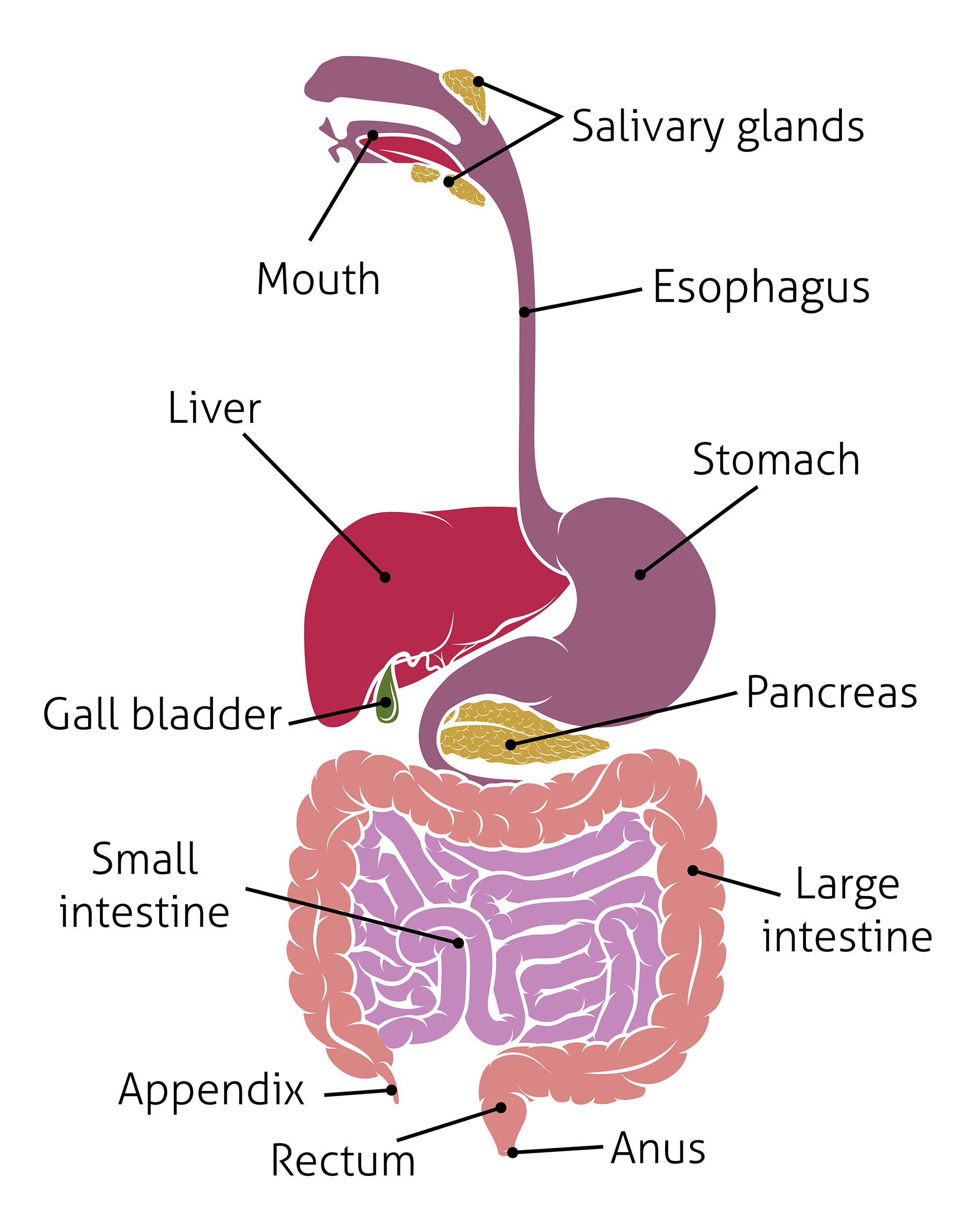
4a3 Lower GIT HumanBio
Part of the digestive system Function; Mouth: Digestion of food starts in the mouth. Teeth break down the food and mix it with the enzymes close enzymes Biological molecules called catalysts which.
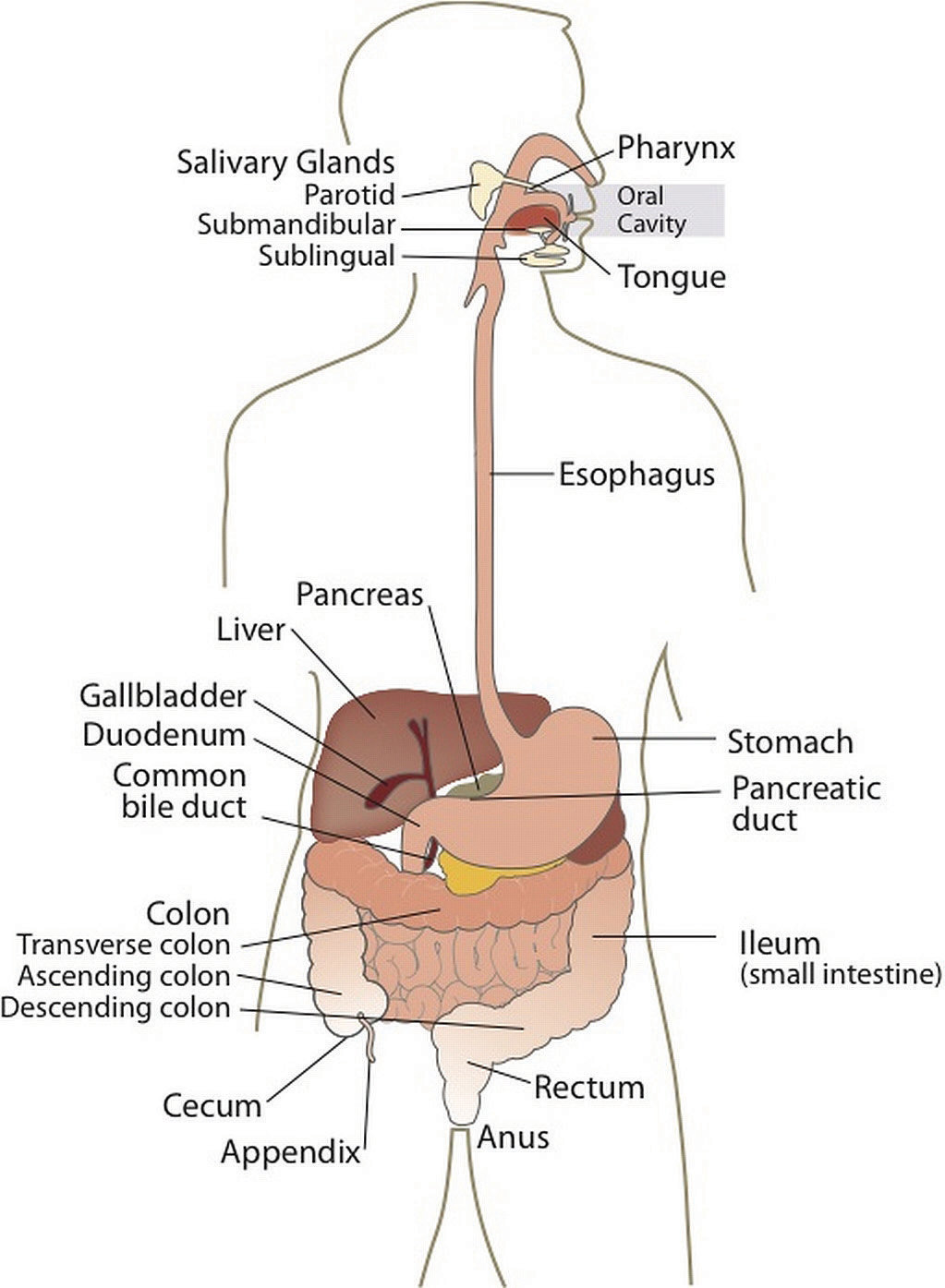
Human Digestive System Drawing at GetDrawings Free download
The main organs that make up your digestive system are the organs known as your gastrointestinal tract. They are: your mouth, esophagus, stomach, small intestine, large intestine and anus. Assisting your GI organs along the way are your pancreas, gallbladder and liver. Here's how these organs work together in your digestive system.
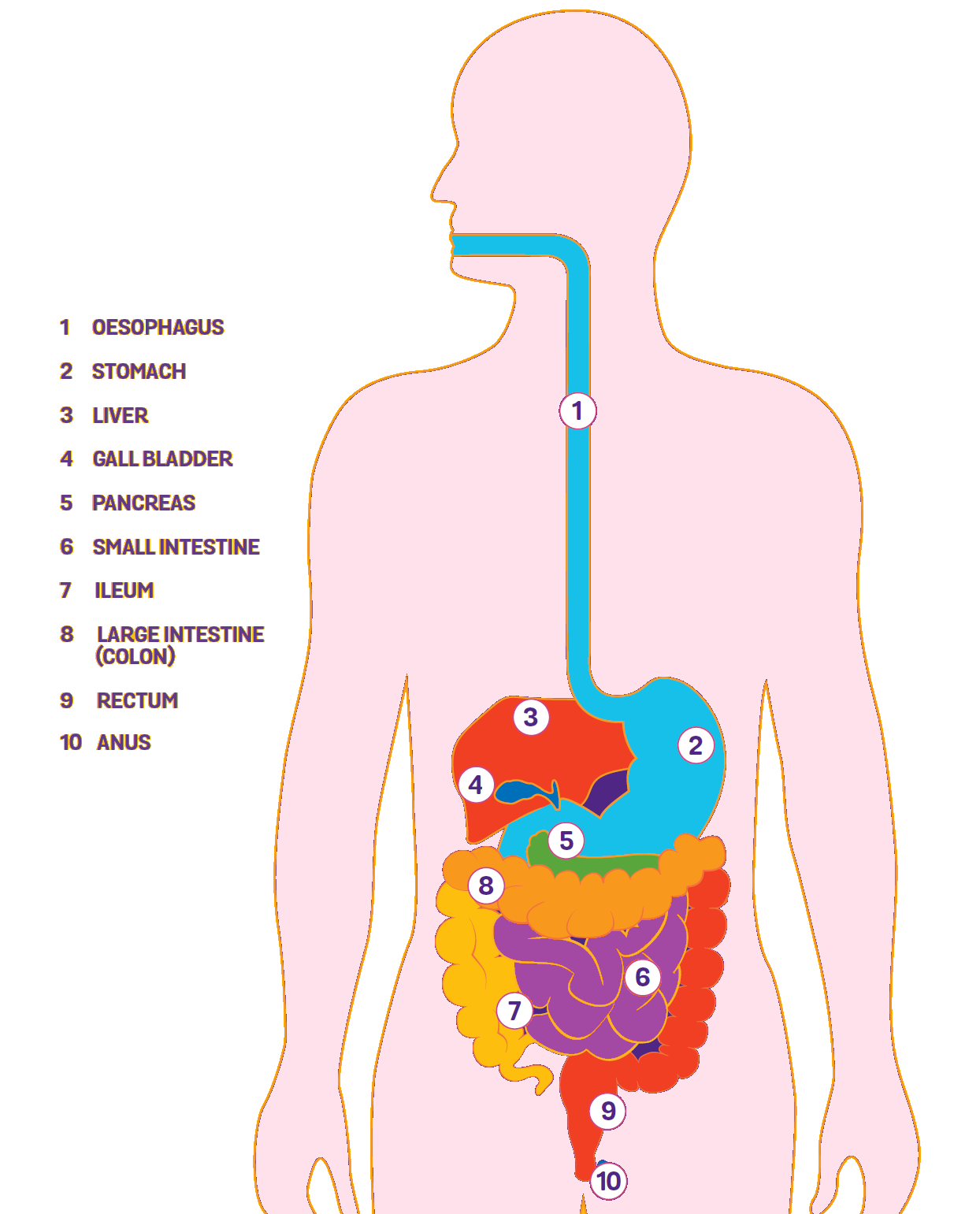
NWP Blog The Digestive System
The digestive system can be broken down into two major components: There is the primary digestive tract, which functions mainly as a conduit and storage pathway.This portion is needed in order to move food contents along the tract (peristalsis) so that absorption of nutrients and excretion of undigested substances can occur.

the digestive system diagram labeled
Label the Digestive System Page 2 of 3 Developed by Madeleine Cox Salivary glands Teeth Tongue Epiglottis Oesophagus Trachea Stomach Spleen Diaphragm Liver Gallbladder Small Intestine Pancreas Appendix Large Intestine Rectum . Created Date:

Parts Of Digestive System Buy Human Organ System Formic Model of
For more labeled parts of the human digestive system, view here. This work is licensed under a Creative Commons Attribution-NonCommercial-ShareAlike 4.0 International License. Image of the digestive system is labeled and matches a practice worksheet used with anatomy students.

Overview of the Digestive System Anatomy and Physiology II
The digestive system is a s eries of structures and organs through which food and liquids are processed before being eliminated from the body. In this interactive, you can label parts of the human digestive system. Use your mouse or finger to hover over a box to highlight the body part to be named.

Digestive System Diagram Quizlet
The digestive system with sections labeled: mouth, esophagus, liver, stomach, gallbladder, pancreas, small intestine, large intestine, rectum, and anus. Caption The digestive system. Diseases or Conditions Digestive Diseases File Size 361 KB | 1380 x 1716 File Type JPG

Digestive system diagram summary Digestive system Step 1 Label the
Human Digestive System. 209,430. 3.49. Science. Oct 2, 2010. Can you label the parts of the human digestive tract? Test your knowledge on this science quiz and compare your score to others.
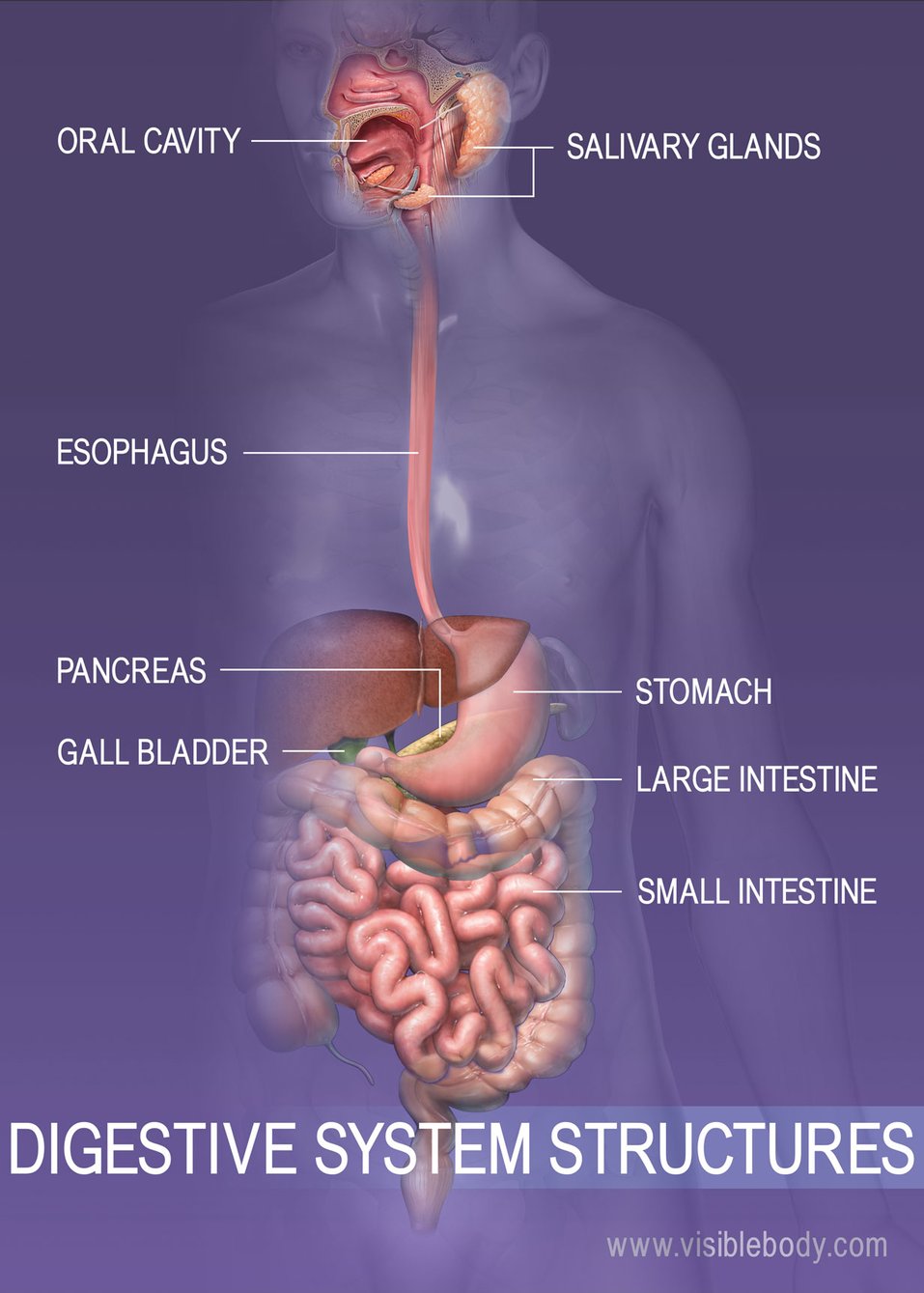
10 Facts About the Digestive System
Digestive System Labeling interactive by teacherrojas +1 1,005,266 plays 15 questions ~40 sec English 15p More 334 3.89 (you: not rated) Tries Unlimited [?] Last Played December 5, 2023 - 02:42 PM There is a printable worksheet available for download here so you can take the quiz with pen and paper. From the quiz author Interactive for 5th Graders
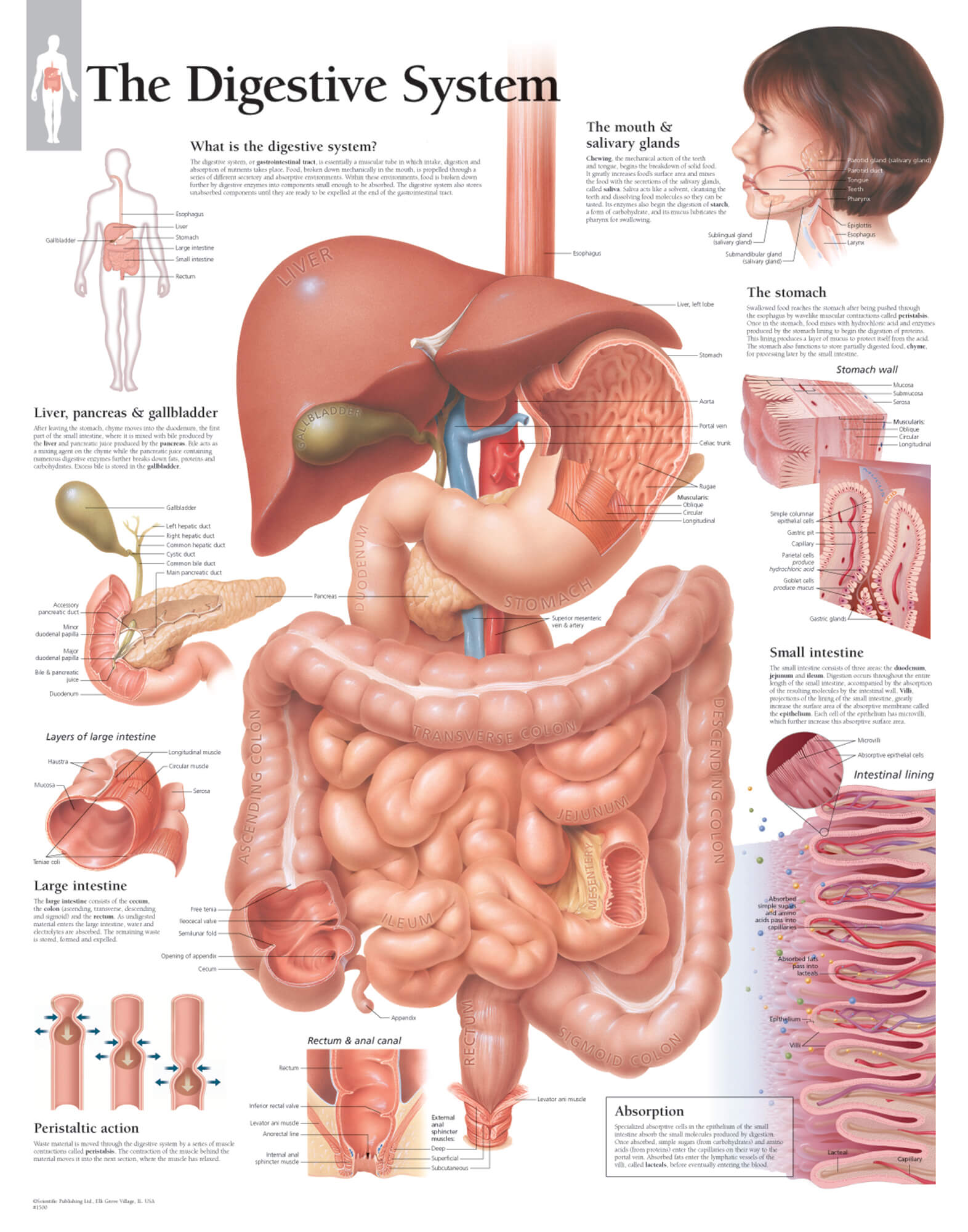
The Digestive System Scientific Publishing
Digestive. The human digestive system is the means by which tissues and organs receive nutrients to function. The system breaks down food, extracts nutrients from it, and converts them into energy.
Learn Digestive System (all) (by joannac) Remember
This versatile Digestive System Labeling Activity caters to all abilities within your classroom. For those budding scientists who struggle with human anatomy, use the heavily scaffolded version. With a word bank of organ and body parts, your learners can match the correct terminology to the arrow on the picture to create a complete Digestive System Labeled Diagram. With the words in the.

Domain For Sale Human digestive system, Human
The digestive tract (or gastrointestinal tract) is a long twisting tube that starts at the mouth and ends at the anus. It is made up of a series of muscles that coordinate the movement of food and.
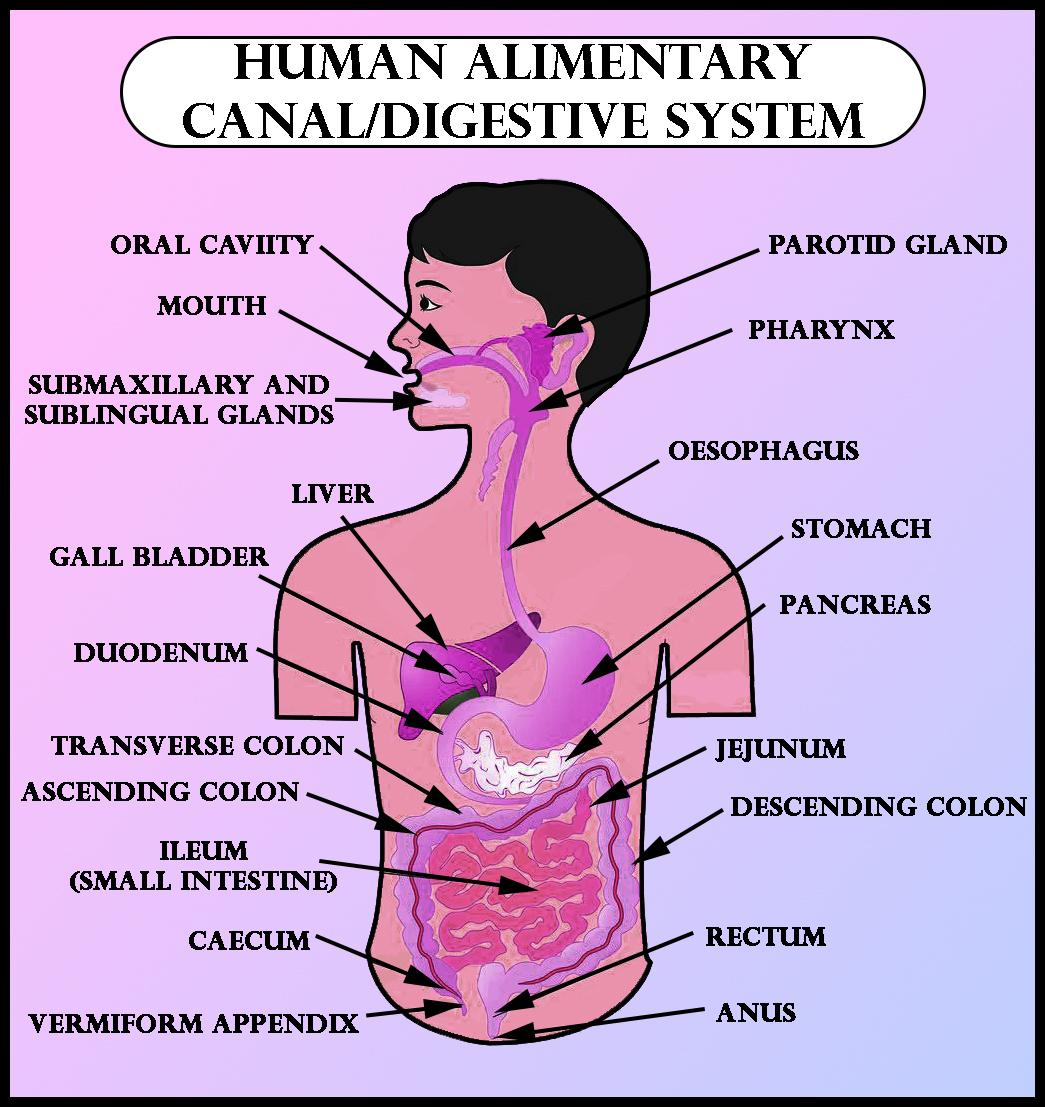
Draw a labelled diagram of the human digestive system and explain it.
Tweet. Published 5 September 2011 Referencing Hub articles. The human digestive system consists of a long muscular tube and several accessory organs such as the salivary glands, pancreas and gall bladder. It is responsible for food ingestion and digestion, absorption of digestion products and the elimination of undigested materials.

Diagram of the Human Digestive System Poster by allhistory Aparato
Labels. Description. liver. Organ that processes nutrients and filters toxins from blood, produces bile and many other functions. gall bladder. Stores bile produced by the liver and releases it into the duodenum. pancreas. Organ that secretes digestive enzymes and produces hormones such as insulin. large intestine.
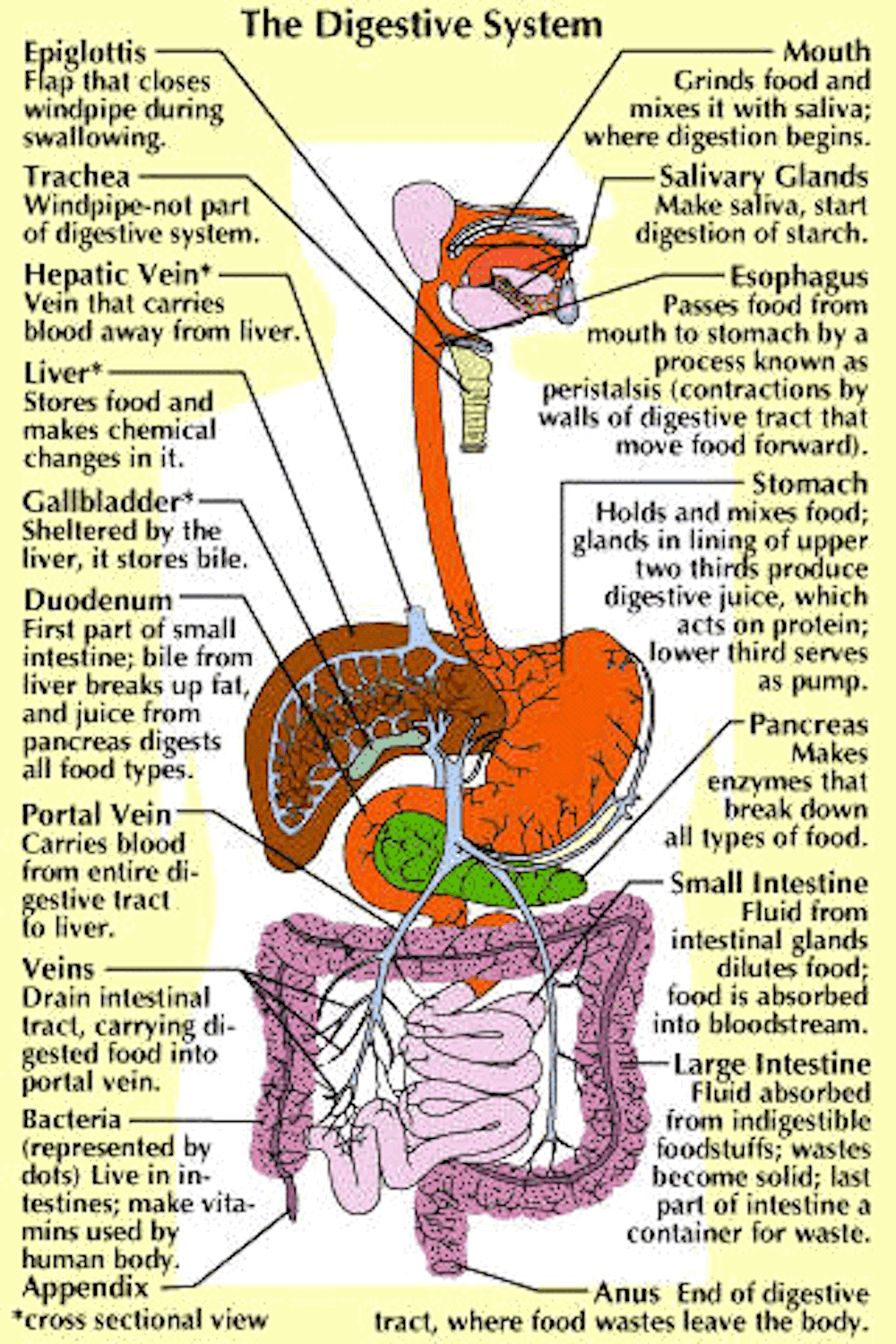
Gastrointestinal System Anatomy And Physiology
The human digestive system consists of the gastrointestinal tract plus the accessory organs of digestion (the tongue, salivary glands, pancreas, liver, and gallbladder). Digestion involves the breakdown of food into smaller and smaller components, until they can be absorbed and assimilated into the body. The process of digestion has three stages: the cephalic phase, the gastric phase, and the.